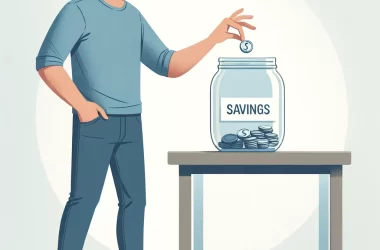What To Do With The Mortgage In The Divorce?
(Updated: June 2025!)
Jump to the FAQ Section of Divorces and Mortgages!
Mortgage and Divorce | Many people who get divorced have a mortgage on their house, and this can cause some problems during and after the divorce. The good news is that the law is pretty clear that the mortgage is to be treated as marital property and divided (usually) equally.
This sounds pretty simple, but it can cause some problems with exactly how you divide the mortgage. For example, does each party pay ½ of the mortgage, and does the person leaving have to pay anything? What if each person has their name on the mortgage, don’t they have to pay? Well, read on, and I will answer all these questions!
To understand what the court will often do, you need to know one of the general unwritten rules in Minnesota Family Court, and that is, usually, the debt follows the asset. This means that whoever gets the house will also be responsible for the mortgage. This is usually a pretty straightforward concept, but the problem comes into play when both parties are on the mortgage note.* Remember that a mortgage is a contract, and the divorce court can’t break that contract, just assign who will pay the note.
In Minnesota, like most states, husbands and wives usually purchase a house together. Most banks like and require having both husband and wife responsible for the mortgage. When you’re married and all is going well, that’s ok. It’s marital property and you pay it with marital money, but when you file for divorce or one party moves out, and you start to divide stuff, what do you do then?
That’s really a two-part question: who pays the mortgage immediately, that is, who will pay it until you figure out what to do with the house after you’re divorced, and what to do right now. The second question is often harder to answer. Whomever gets the house will usually have to refinance and remove the other person’s name from the mortgage (more on that later).
1. Immediately Pay Off Mortgage During Divorce
The best solution is to try to work it out between you and your spouse. Talk to him or her and see if you can work out a deal that you can both live with. Perhaps split the payment for a few months? Maybe the person staying there could pay all of the mortgage, or the person who is better able to pay might pay all of it? This is very fact-specific, and it’s hard to give general tips here. But what you want to do is make sure that you do address this! Not paying your mortgage is not the best solution, as it hurts your
Oftentimes times the Court will order the person staying in the home to pay the mortgage. This does seem to make sense since the person moving out will often have to pay rent for their home, and it seems an equitable way to share a payment no one really wants to pay.
In alimony or spousal support cases, it is often a little different. The person who is better suited to make that payment (the person who has the money) will often be ordered to pay the mortgage while the case is being dealt with in court. Sometimes this will require getting a temporary order in place so the Judge can order it.
2. Long Term Payment Of The Mortgage
Usually, the court will order (or you will come to an agreement) that the parties have 90 days or so in order to refinance or remove the ex-spouse from the note. This is important for a few reasons.
The first is that the debt-to-income ratio may be skewed, and that will impact a person’s credit score if they don’t remove themselves from the mortgage. This, obviously, will impact the ability to buy a home and get credit, so it’s very important not to be stuck on a mortgage to a home you don’t own!
The obvious way is a straight refinance. As I write this with the new rules in place, it’s important to know that the banks are giving money out like they used to. You typically need 20% down and have a good credit score even for a refinance! One way out of this is what I like to call a divorce refi.
Now, before you call your bank and tell them you read about this online or a lawyer told you to ask for one, you need to know that is MY nickname for them. The technical term is a limited refinance or a mortgage assumption. Most banks that I’ve dealt with don’t do it, and I don’t blame them since they would rather make thousands on a refi than a few hundred on a mortgage assumption.
One bank that is very impressive how easy it is to do a divorce refi, is Wells Fargo. I’ve found that many of the local, smaller banks, while generally having more one-on-one service, really don’t like to do these “divorce refis”. I’m not endorsing Wells Fargo, but if you have a loan through them, it’s worth a call.
NOTE: These “divorce refis” are only available if that bank has your current mortgage. You can’t have a U.S. Bank mortgage and call Wells Fargo and ask for a divorce refi; they will want to do a full refinance. ANOTHER NOTE: I’m a lawyer, not a banker, so I am going off my experience. If any loan officers are reading and want to comment, I would love to hear what you have to say.
3. Alternative Arrangements
Depending on the situation, you might need to get creative. What do I mean get creative? Well, if you can’t refinance the home because there isn’t enough equity or your debt-to-income ratio is skewed, then you need to think outside the box.
Option A: Sell the house. Yes, yes, I know, I know you love that house! But if the house is going to be an anchor, don’t let it drag you down. Sell it, take your half of the money, and find a new perfect place to call home.
Option B: Try and extend the payments: By this, I mean if you owe your ex-spouse, say, $100,000 from her share of the equity in the house, go ahead and pay $20,000 for 5 years. You’ll have to negotiate this and perhaps even pay a little extra, but it might be the best route for you (and your soon-to-be ex).
Option C: Rather than the normal 90-day limit to refinance and remove the spouse’s name from the mortgage, you can try to negotiate a year or two or even three! This may give you breathing room to get your finances in order to do the Refi.
There you go, a few tips about what to do if you’re getting a divorce and have a mortgage. Be sure you talk to your lawyer about this and any problems you think you might have while you deal with the divorce and the Refi.
Best of luck on your case!
**A few definitions that you may be interested in:
Note/Mortgage is really the same thing and is the actual loan document.
A deed is the legal document that bestows ownership of the property. While most of the time these two documents have the same name on them, but not necessarily.
Frequently Asked Questions: Divorce And Mortgages (FAQ)
1. Do both spouses have to keep paying the mortgage during the divorce?
Not necessarily. While both names may be on the mortgage, the court often assigns temporary responsibility to the spouse remaining in the home. This can be formalized through a temporary order. However, both parties should communicate early and clearly to avoid missed payments or credit issues.
2. Can the divorce court remove my name from the mortgage?
No. The divorce court can assign who must pay the mortgage, but it cannot change the underlying loan contract. The only way to remove your name is through a refinance or mortgage assumption (if your lender allows it).
3. What happens if we can’t refinance right away?
You may be able to negotiate a longer timeline (sometimes 1–3 years )especially if your credit or equity situation makes refinancing difficult. Make sure this is clearly stated in the divorce decree to avoid future disputes.
4. What if neither of us can afford the house on our own?
Selling the home is often the best solution in these cases. It allows both parties to walk away cleanly and split the equity, rather than being tied to an unaffordable or emotionally draining asset.
The information on mankatofamilylaw.com is intended to provide general insights into Minnesota Family Law and may be helpful to some readers. However, nothing on this site should be taken as legal advice. Mr. Kohlmeyer is licensed to practice law in Minnesota and cannot offer legal services or guidance to individuals outside the state. If you’re interested in retaining Mr. Kohlmeyer for your family law matter, please call 507-625-5000.





SIDENOTE: I received an interesting email from a lawyer in the Metro area who disagreed with one point in the article and said that current underwriting standards allow the bank to disregard the obligation if the divorce decree states the person is not responsible to pay it. Very interesting, so I did a little investigating and after calling two mortgage officers I have some news for you on this point.
1. The national bank indicated that if the payments have been made on time then the original mortgage won’t be factored in.
2. The Regional bank didn’t care about this and said they would indeed factor any debt into account.